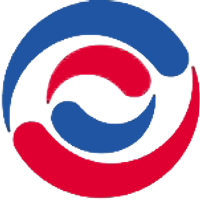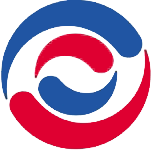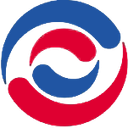
Allison Transmission Holdings Inc
NYSE:ALSN


| US |

|
Johnson & Johnson
NYSE:JNJ
|
Pharmaceuticals
|
| US |

|
Berkshire Hathaway Inc
NYSE:BRK.A
|
Financial Services
|
| US |

|
Bank of America Corp
NYSE:BAC
|
Banking
|
| US |

|
Mastercard Inc
NYSE:MA
|
Technology
|
| US |

|
UnitedHealth Group Inc
NYSE:UNH
|
Health Care
|
| US |

|
Exxon Mobil Corp
NYSE:XOM
|
Energy
|
| US |

|
Pfizer Inc
NYSE:PFE
|
Pharmaceuticals
|
| US |

|
Palantir Technologies Inc
NYSE:PLTR
|
Technology
|
| US |

|
Nike Inc
NYSE:NKE
|
Textiles, Apparel & Luxury Goods
|
| US |

|
Visa Inc
NYSE:V
|
Technology
|
| CN |

|
Alibaba Group Holding Ltd
NYSE:BABA
|
Retail
|
| US |

|
3M Co
NYSE:MMM
|
Industrial Conglomerates
|
| US |

|
JPMorgan Chase & Co
NYSE:JPM
|
Banking
|
| US |

|
Coca-Cola Co
NYSE:KO
|
Beverages
|
| US |

|
Walmart Inc
NYSE:WMT
|
Retail
|
| US |

|
Verizon Communications Inc
NYSE:VZ
|
Telecommunication
|
Utilize notes to systematically review your investment decisions. By reflecting on past outcomes, you can discern effective strategies and identify those that underperformed. This continuous feedback loop enables you to adapt and refine your approach, optimizing for future success.
Each note serves as a learning point, offering insights into your decision-making processes. Over time, you'll accumulate a personalized database of knowledge, enhancing your ability to make informed decisions quickly and effectively.
With a comprehensive record of your investment history at your fingertips, you can compare current opportunities against past experiences. This not only bolsters your confidence but also ensures that each decision is grounded in a well-documented rationale.
Do you really want to delete this note?
This action cannot be undone.

| 52 Week Range |
55.67
119.7516
|
| Price Target |
|
We'll email you a reminder when the closing price reaches USD.
Choose the stock you wish to monitor with a price alert.

|
Johnson & Johnson
NYSE:JNJ
|
US |

|
Berkshire Hathaway Inc
NYSE:BRK.A
|
US |

|
Bank of America Corp
NYSE:BAC
|
US |

|
Mastercard Inc
NYSE:MA
|
US |

|
UnitedHealth Group Inc
NYSE:UNH
|
US |

|
Exxon Mobil Corp
NYSE:XOM
|
US |

|
Pfizer Inc
NYSE:PFE
|
US |

|
Palantir Technologies Inc
NYSE:PLTR
|
US |

|
Nike Inc
NYSE:NKE
|
US |

|
Visa Inc
NYSE:V
|
US |

|
Alibaba Group Holding Ltd
NYSE:BABA
|
CN |

|
3M Co
NYSE:MMM
|
US |

|
JPMorgan Chase & Co
NYSE:JPM
|
US |

|
Coca-Cola Co
NYSE:KO
|
US |

|
Walmart Inc
NYSE:WMT
|
US |

|
Verizon Communications Inc
NYSE:VZ
|
US |
This alert will be permanently deleted.
 Allison Transmission Holdings Inc
Allison Transmission Holdings Inc
Allison Transmission Holdings Inc
Investor Relations
Allison Transmission Holdings Inc., headquartered in Indianapolis, Indiana, has a robust history rooted in innovation and engineering excellence. Founded in 1915 by James A. Allison, the company began its journey crafting reliable parts for the booming automotive industry of the early 20th century. As time progressed, Allison Transmission became synonymous with producing high-performance automatic transmissions for both commercial and military applications. This evolution was a reflection of its commitment to solving real-world vehicle challenges through technology. At its core, the company excels by integrating advanced engineering with top-tier manufacturing, enabling it to produce durable products that withstand rigorous usage across various environments.
The company generates its revenue by supplying its automatic transmissions and propulsion solutions to a diverse clientele, including manufacturers of commercial trucks, buses, and heavy-duty off-highway vehicles, as well as defense contractors. Allison's business model aligns closely with the critical demands of its customers, offering systems that enhance fuel efficiency, reduce emissions, and improve vehicle uptime. The company maintains a global presence through a network of distributors and dealers, strategically ensuring that its resilient products and innovative solutions are accessible worldwide. By continuously investing in research and development, Allison Transmission has solidified its position as a leader in its field, successfully navigating both the challenges and opportunities presented by the ever-evolving automotive landscape.

Allison Transmission Holdings Inc., headquartered in Indianapolis, Indiana, has a robust history rooted in innovation and engineering excellence. Founded in 1915 by James A. Allison, the company began its journey crafting reliable parts for the booming automotive industry of the early 20th century. As time progressed, Allison Transmission became synonymous with producing high-performance automatic transmissions for both commercial and military applications. This evolution was a reflection of its commitment to solving real-world vehicle challenges through technology. At its core, the company excels by integrating advanced engineering with top-tier manufacturing, enabling it to produce durable products that withstand rigorous usage across various environments.
The company generates its revenue by supplying its automatic transmissions and propulsion solutions to a diverse clientele, including manufacturers of commercial trucks, buses, and heavy-duty off-highway vehicles, as well as defense contractors. Allison's business model aligns closely with the critical demands of its customers, offering systems that enhance fuel efficiency, reduce emissions, and improve vehicle uptime. The company maintains a global presence through a network of distributors and dealers, strategically ensuring that its resilient products and innovative solutions are accessible worldwide. By continuously investing in research and development, Allison Transmission has solidified its position as a leader in its field, successfully navigating both the challenges and opportunities presented by the ever-evolving automotive landscape.





























 You don't have any saved screeners yet
You don't have any saved screeners yet
